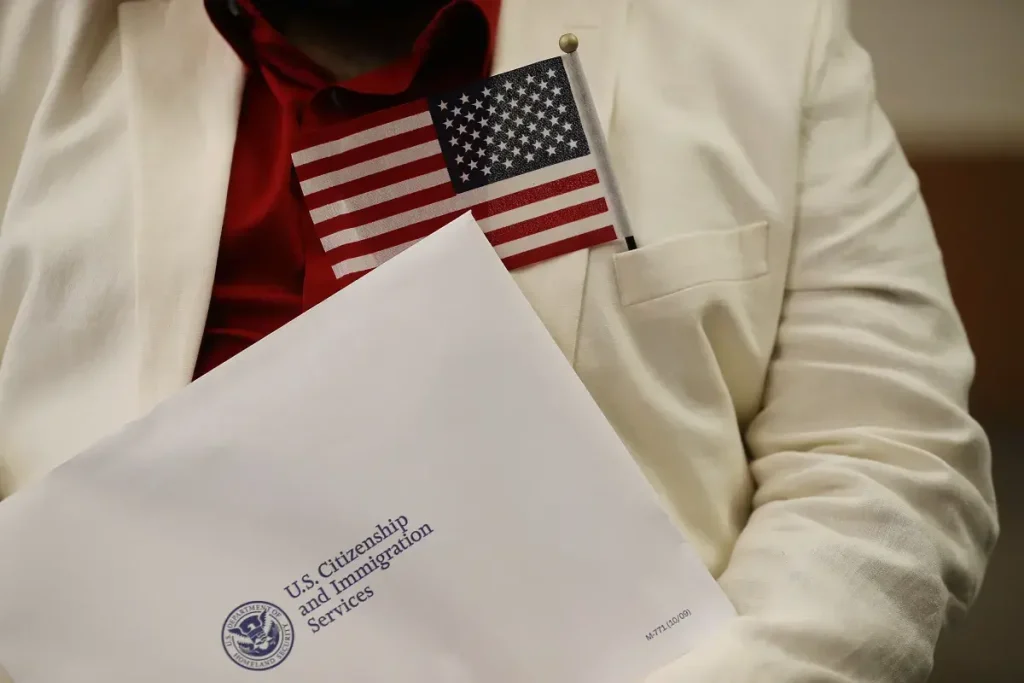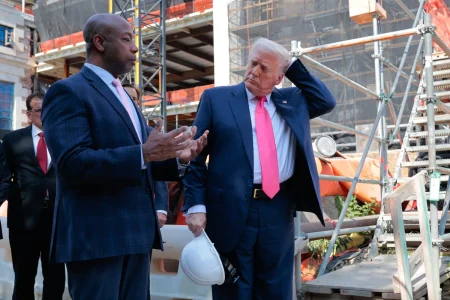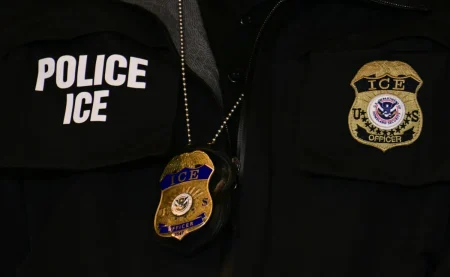USCIS Simplifies Citizenship Verification for Voter Rolls with Partial SSN Access
The U.S. Citizenship and Immigration Services (USCIS) has implemented a significant change to its Systematic Alien Verification for Entitlements (SAVE) program, allowing states to verify citizenship status using only a person’s name and the last four digits of their Social Security number. This modification, which eliminates the previous requirement for a full nine-digit SSN, represents an important shift in how states can maintain their voter rolls. Originally designed to determine eligibility for public benefits, the SAVE program has evolved into a tool that states use to confirm voter citizenship status—a function that has taken on greater significance in today’s politically charged environment surrounding election integrity.
The change comes amid a broader national conversation about voting rights and election security, with the Trump administration framing it as part of efforts to strengthen election integrity. About 26 states have either established or are pursuing agreements with USCIS to use this verification system for voter checks. For election offices with these agreements, the ability to run citizenship verification using partial Social Security numbers could streamline their routine audits and reduce the administrative burden of incomplete matches that previously required additional data collection. However, it’s important to understand that how potential mismatches are handled—whether voters are contacted, asked for documentation, or potentially removed from rolls—varies significantly by state and is governed by local election procedures rather than federal mandates.
This policy adjustment aligns with a recent Executive Order signed by President Trump that directs federal agencies, including the Department of Homeland Security, Social Security Administration, and Department of State, to provide states with database access for verifying voter eligibility and citizenship. The order also instructs the Attorney General to prioritize enforcement of laws against noncitizen voting, using federal records in coordination with state attorneys general. The Election Assistance Commission is tasked with requiring government-issued documentation to confirm U.S. citizenship on voter registration forms—part of what the administration describes as a comprehensive approach to ensuring only eligible citizens participate in American elections.
The scale of this verification system is substantial, with USCIS reporting approximately 46 million voter verification queries from state voting agencies and about 110 million benefit-related queries from federal agencies this year alone—totaling more than 205 million status verification checks as of October 2025. These figures, while provided by the agency, have not been independently audited. For most registered voters, this change will have no noticeable effect unless a verification check identifies a potential mismatch in their records. In such cases, it’s the state election officials—not USCIS—who determine the appropriate response, which might include contacting the voter, requesting additional documentation, or updating their registration information based on state-specific procedures.
Supporters of the change argue that it will help states more efficiently confirm citizenship status and protect elections from potential fraud, with USCIS spokesman Matthew Tragesser stating that the agency remains “dedicated to eliminating barriers to securing the nation’s electoral process” and that this change reinforces “the principle that America’s elections are reserved exclusively for American citizens.” The simplified verification process may indeed reduce manual follow-up work in some cases, though it could potentially produce more preliminary matches requiring review. For election administrators, this represents both an opportunity for greater efficiency and a responsibility to handle verification results appropriately within their state’s legal framework.
Critics, however, contend that the policy addresses an exceedingly rare problem—noncitizen voting—and risks creating additional barriers for eligible American voters, particularly those from marginalized communities who may be disproportionately affected by verification mismatches. This change occurs against the backdrop of various state-level initiatives to tighten voter ID requirements, with several states deciding ballot measures on these issues. The debate reflects fundamental tensions in American democracy between ensuring election accessibility and maintaining election security—a balance that continues to evolve as technology, policy, and political priorities shift. As with many aspects of our electoral system, the impact of this verification change will likely vary considerably based on how individual states implement it and how voters experience the process in their communities.















